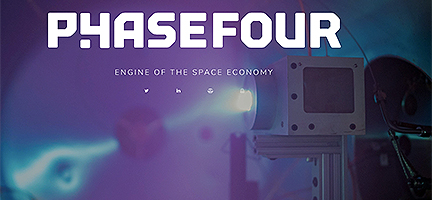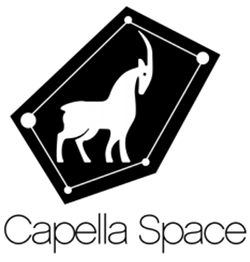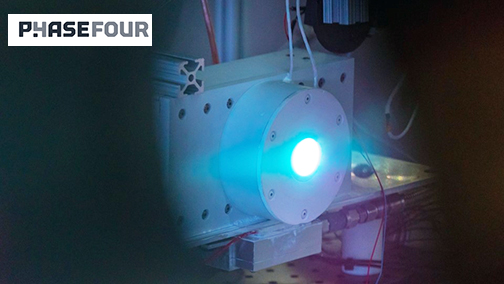
Phase Four announced late last month that Capella Space has purchased six Maxwell engines for initial phase of constellation deployment, with an option to purchase additional Maxwell systems.

Capella Space is well-respected for its Synthetic Aperture Radar (SAR) technology that is designed to detect sub-meter changes on the Earth’s surface and tapped Maxwell as the company's preferred propulsion solution for the firm's phased deployment of a constellation of 36 smallsats.

Phase Four's Maxwell engine. Photo is courtesy of the company.
Introduced in November 2018, Phase Four’s Maxwell is the first turnkey RF thruster-based propulsion solution targeted at small satellite constellations and is gaining swift traction with commercial and government satellite manufacturers. Maxwell brings new smallsat constellations the performance and efficiency of legacy electric propulsion systems, while obviating the need for expensive components that have hampered high performance propulsion solutions for small satellites.
According to the company, their small satellites are designed and deployed in less time and at a fraction of the cost of traditional high-resolution SAR systems, representing a seismic shift in the development of remote-sensing infrastructure. Once on-orbit, the high frequency revisit rate of the Capella constellation will improve reliability and accessibility to timely planetary insights anywhere on the globe. With support from Maxwell’s propulsion system, Capella’s small satellites will detect change and draw insights from high value areas of interest for customers across an array of industries, including commodity trading, shipping and maritime security, agriculture and food security, and defense and global infrastructure integrity monitoring. Phase Four will begin shipping Maxwell in Q3 2019.

Additionally, Tyvak Nano-Satellite Systems, Inc., a Terran Orbital corporation, has purchased multiple Maxwell thrusters for their expanding portfolio of end-to-end smallsat solutions. Tyvak selected Maxwell to validate their capability to fulfill multiple mission needs, including orbital adjustments and safe de-orbiting of satellites.
“The emergence and sheer number of small satellite constellations headed into space over the next few years marks a turning point for the space economy, as increased demand for more commercial missions drive significant ROI for the first time in history,” said Beau Jarvis, Phase Four CEO. “Maxwell was designed to be the engine that powers these missions into LEO and beyond in an economical and efficient manner for our customers and we believe our RF Thruster technology will be the long-term solution for satellite propulsion.”
Executive Comments
Christian Lenz, the VP of Engineering at Capella Space, said selecting Phase Four’s Maxwell as an engine for the company's satellites enables higher performance at lower cost. In terms of ROI, delta-V performance, and plug-and-play integration, Maxwell checks the boxes for employing the best performing systems and space technology in our mission to make vital information about our planet more accessible and reliable. Capella Space is pleased to cement this partnership with Phase Four and look forward to putting their capabilities on-orbit with the firm's launches later this year.
Beau Jarvis, Phase Four CEO, added that as the burgeoning demand for small satellite constellations increases on a commercial scale, propulsion technology that is performant, readily manufactured at scale and affordable is required. Demand for such high performing affordable propulsion solutions will only continue to increase. With efficiency and scalability at the forefront, Phase Four’s core thruster technology allows for future spacecraft to use less, further contributing to the sustainable in-space industry and delivering on the promise to provide a satellite propulsion engine that powers missions into LEO and beyond in an economical and efficient manner.

